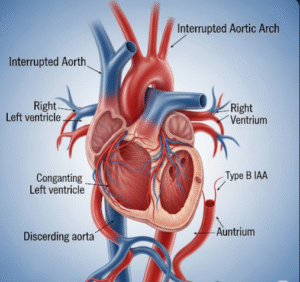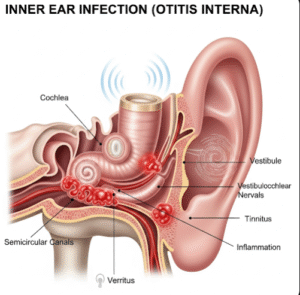Overview
Gastroenteritis is an inflammation of the stomach and intestines commonly caused by infections. It leads to symptoms like diarrhea, vomiting, abdominal pain, and dehydration. While often self-limiting, it can be serious in young children, the elderly, and immunocompromised patients. South Korea has advanced medical facilities that provide timely diagnosis and effective treatment for gastroenteritis.
What is Gastroenteritis?
Gastroenteritis refers to the inflammation of the gastrointestinal tract, particularly the stomach and small intestine. It is most frequently caused by viral infections but can also result from bacteria, parasites, toxins, or medications. The illness disrupts normal absorption and causes fluid loss through diarrhea and vomiting.
Symptoms
- Diarrhea (usually watery)
- Nausea and vomiting
- Abdominal cramps and pain
- Fever (sometimes present)
- Loss of appetite
- Fatigue and weakness
- Signs of dehydration like dry mouth, dizziness, decreased urine output
Causes
- Viruses: Norovirus, Rotavirus, Adenovirus (most common)
- Bacteria: Salmonella, Escherichia coli, Campylobacter, Shigella
- Parasites: Giardia lamblia, Cryptosporidium
- Food poisoning due to bacterial toxins
- Certain medications or chemicals
Risk Factors
- Consumption of contaminated food or water
- Poor hand hygiene
- Close contact with infected individuals
- Travel to areas with poor sanitation
- Being very young, elderly, or immunocompromised
- Living in crowded conditions
Complications
- Severe dehydration
- Electrolyte imbalances
- Kidney damage in extreme cases
- Malnutrition from prolonged illness
- Secondary infections due to weakened immunity
Prevention
- Wash hands regularly with soap and water
- Drink safe, clean water and avoid questionable foods
- Proper food handling and cooking
- Vaccination against rotavirus in children
- Avoid close contact with infected persons
- Practice good sanitation and hygiene
Treatment Options in Korea
South Korea offers excellent healthcare services to manage gastroenteritis effectively:
- Diagnosis
- Physical examination and symptom evaluation
- Stool tests to identify viral, bacterial, or parasitic causes
- Blood tests to assess dehydration and electrolyte status
- Treatment
- Oral rehydration solutions (ORS) to restore fluids and electrolytes
- Intravenous fluids for severe dehydration
- Anti-nausea medications as needed
- Antibiotics only if bacterial infection is confirmed
- Antiparasitic drugs if parasitic infection is diagnosed
- Supportive Care
- Rest and gradual return to normal diet
- Monitoring hydration and vital signs
- Hospital Care
- Available at leading hospitals such as Samsung Medical Center, Seoul National University Hospital, and Asan Medical Center for serious cases
- Public Health Measures
- Korean health authorities monitor outbreaks and promote public education on hygiene and food safety













